Coriander – Organic Natural
Coriander: Coriander, also known as cilantro in some regions, is an herb commonly used in cooking around the world. Here are some basic facts about coriander:
Plant: Coriander comes from the plant Coriandrum sativum. It is an annual herb that belongs to the parsley family.
Parts Used: Both the leaves (known as cilantro) and the seeds are used in cooking. The leaves have a fresh, citrusy flavor, while the seeds have a warm, slightly citrusy, and nutty flavor.
Taste and Aroma: Coriander has a unique taste that can be described as a combination of citrus, earthy, and slightly peppery flavors. Some people enjoy the fresh, bright taste of cilantro leaves, while others find them to have a soap-like or unpleasant flavor due to genetic factors.
Usage: Coriander is a versatile herb used in a wide range of cuisines. Cilantro leaves are often used as a garnish for soups, salads, and various dishes, particularly in Mexican, Indian, and Thai cuisines. Coriander seeds are used as a spice in spice blends, curries, and pickling.
Health Benefits: Coriander is considered to have potential health benefits. It is a good source of antioxidants and may help with digestion and various digestive issues. Some people use coriander for its potential anti-inflammatory properties.
Nutritional Value: Coriander leaves are low in calories and provide small amounts of vitamins and minerals, including vitamin C, vitamin K, and potassium. Coriander seeds are richer in nutrients, including dietary fiber, iron, and magnesium.
Coriander is a popular and flavorful herb that adds depth and complexity to many dishes. Whether you use the leaves or seeds, it’s a great way to enhance the taste of your meals while potentially benefiting from its nutritional properties.
The nutritional value of coriander (cilantro) leaves and coriander seeds can vary slightly, but here are approximate values for both per 100 grams:
Coriander Leaves (Cilantro):
Calories: About 23 calories
Protein: Approximately 2.1 grams
Fat: Around 0.5 grams
Carbohydrates: Roughly 3.7 grams
Dietary Fiber: About 2.8 grams
Sugars: Less than 0.9 grams
Vitamin C: Approximately 27 milligrams (45% of the Daily Value, DV)
Vitamin K: Around 48 micrograms (60% DV)
Calcium: Approximately 67 milligrams (7% DV)
Iron: About 1.8 milligrams (10% DV)
Magnesium: Roughly 26 milligrams (7% DV)
Potassium: Approximately 521 milligrams (15% DV)
Coriander Seeds:
Calories: About 298 calories
Protein: Approximately 12.4 grams
Fat: Around 17.8 grams
Carbohydrates: Roughly 54.7 grams
Dietary Fiber: About 41.9 grams
Sugars: Less than 0.9 grams
Vitamin C: Approximately 21 milligrams (35% DV)
Vitamin K: Around 310 micrograms (387% DV)
Calcium: Approximately 709 milligrams (71% DV)
Iron: About 16.3 milligrams (91% DV)
Magnesium: Roughly 330 milligrams (82% DV)
Potassium: Approximately 1267 milligrams (36% DV)
Coriander leaves (cilantro) are low in calories and a good source of vitamins C and K, along with essential minerals like calcium, iron, and potassium. They are also known for their fresh, citrusy flavor and are often used as a garnish in many dishes.
Coriander seeds, on the other hand, are rich in dietary fiber, iron, magnesium, and vitamin K. They have a warm and nutty flavor and are used primarily as a spice in cooking, particularly in Indian, Middle Eastern, and Asian cuisines.
Both parts of the coriander plant have their own unique nutritional profiles and are used for distinct culinary purposes.
Calories: About 298 calories
Protein: Approximately 12.4 grams
Fat: Around 17.8 grams
Carbohydrates: Roughly 54.7 grams
Dietary Fiber: About 41.9 grams
Sugars: Less than 0.9 grams
Vitamin C: Approximately 21 milligrams (35% DV)
Vitamin K: Around 310 micrograms (387% DV)
Calcium: Approximately 709 milligrams (71% DV)
Iron: About 16.3 milligrams (91% DV)
Magnesium: Roughly 330 milligrams (82% DV)
Potassium: Approximately 1267 milligrams (36% DV)
Coriander leaves (cilantro) are low in calories and a good source of vitamins C and K, along with essential minerals like calcium, iron, and potassium. They are also known for their fresh, citrusy flavor and are often used as a garnish in many dishes.
Coriander seeds, on the other hand, are rich in dietary fiber, iron, magnesium, and vitamin K. They have a warm and nutty flavor and are used primarily as a spice in cooking, particularly in Indian, Middle Eastern, and Asian cuisines.
Both parts of the coriander plant have their own unique nutritional profiles and are used for distinct culinary purposes.

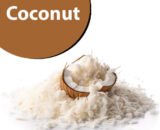
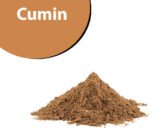
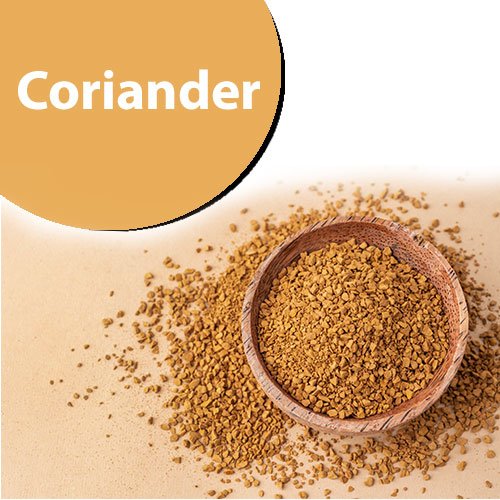
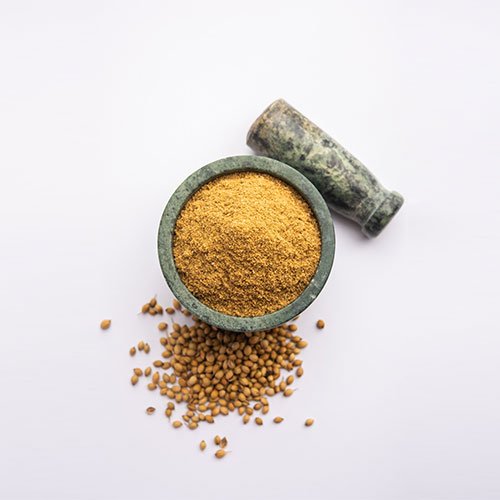

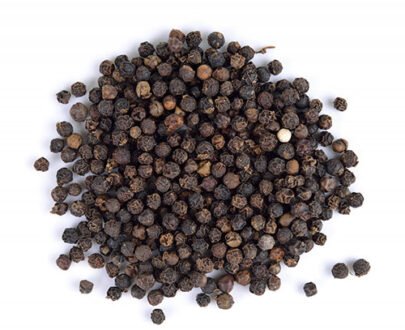
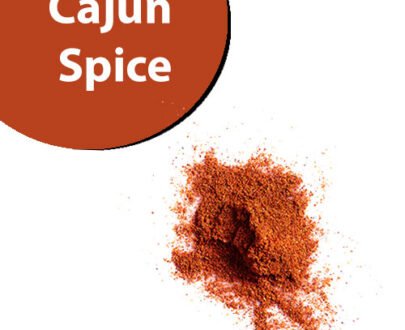
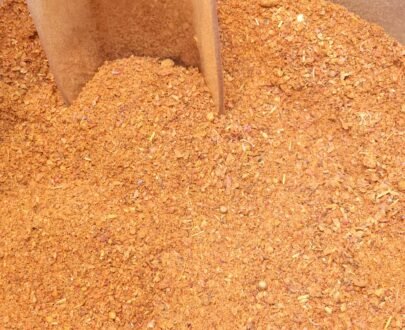


Customer reviews
Reviews
There are no reviews yet.
Write a customer review